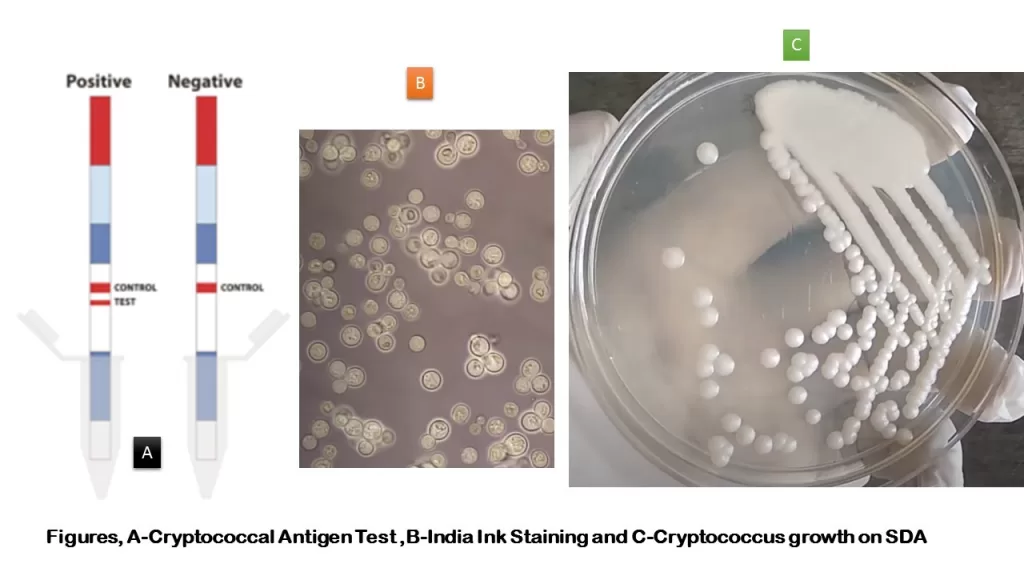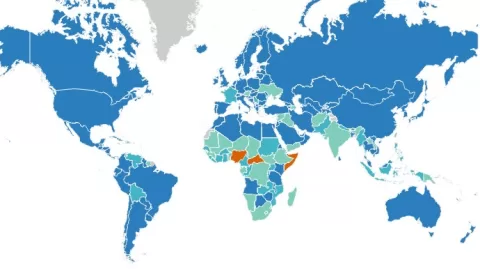Cryptococcal Antigen Screening, also known as CrAg testing, is essential in managing patients, particularly those living with HIV, as it enables the early detection of cryptococcosis—a serious fungal infection. This straightforward and cost-effective diagnostic tool is crucial in identifying asymptomatic infections in immunocompromised individuals, allowing for timely intervention before symptoms arise. In a landscape where infections screening is vital for public health, understanding cryptococcus symptoms can significantly impact patient outcomes and reduce the mortality rate associated with this disease. However, recent surveys highlight a concerning gap in adherence to CrAg testing guidelines among healthcare professionals, illustrating an urgent need for education and improved practices. As we delve deeper into the nuances of Cryptococcal Antigen Screening, it becomes evident that better awareness and implementation of CrAg testing could lead to healthier lives for those affected by HIV.
Cryptococcal Antigen Testing, often referred to as CrAg testing, is a pivotal component of infectious disease management, particularly for individuals at risk due to conditions like HIV/AIDS. This diagnostic approach facilitates the screening of potential cryptococcosis cases, a life-threatening condition caused by the fungal pathogen Cryptococcus. By identifying at-risk patients early, healthcare providers can intervene promptly, thereby reducing the likelihood of severe complications or fatalities. Despite its critical role, there appears to be a lack of consistency in testing practices, revealing gaps in the application of established CrAg testing protocols. Addressing these issues is crucial for enhancing the effectiveness of infections screening initiatives aimed at mitigating the impact of cryptococcal disease.
Understanding Cryptococcal Antigen Screening
Cryptococcal antigen screening (CrAg screening) is an important diagnostic tool in the management of patients with HIV, especially those with low CD4 counts. This type of screening helps identify potential cryptococcal infections before symptoms arise, which is essential given the severe morbidity and mortality associated with cryptococcosis. In the United States, the CDC recommends routine CrAg screening for individuals with CD4 counts of ≤200 cells/mm³, yet studies suggest that adherence to these guidelines varies significantly among healthcare providers. Factors like uncertainty regarding the benefits of testing and the specifics of screening recommendations contribute to these discrepancies in practice.
In recent surveys, it was found that while many healthcare providers understand the importance of CrAg screening, only a fraction routinely tests their patients, particularly those with CD4 counts under 100 cells/mm³. Addressing these gaps in knowledge is critical for improving outcomes in patients at high risk for severe cryptococcal disease. Educational initiatives aimed at infectious disease specialists can enhance awareness of the benefits of early intervention through screening, thus potentially reducing the incidence of severe infections and associated hospitalizations.
Frequently Asked Questions
What is Cryptococcal Antigen Screening and why is it important for HIV patients?
Cryptococcal Antigen Screening, commonly known as CrAg testing, is a diagnostic tool used to detect cryptococcal infections in patients, particularly those with HIV and low CD4 counts. It is crucial for early identification of asymptomatic infections, allowing for prompt treatment that can prevent severe complications like cryptococcal meningitis, thus significantly improving patient outcomes.
What are the current CrAg testing guidelines for individuals with HIV?
Current CrAg testing guidelines recommend routine screening for individuals with HIV and CD4 counts ≤200 cells/mm³. This is particularly important for patients initiating antiretroviral therapy (ART), as early detection can lead to timely intervention and reduce the risk of serious illness related to cryptococcosis.
How does CrAg testing help in the early detection of cryptococcal infections?
CrAg testing helps in the early detection of cryptococcal infections by identifying the presence of cryptococcal antigens in the blood weeks to months before any symptoms manifest. This early screening is vital for patients with compromised immune systems, such as those with HIV, enabling healthcare providers to begin treatment before the condition progresses.
What are the common symptoms of cryptococcosis that CrAg screening aims to identify early?
Common symptoms of cryptococcosis include fever, headache, and neck stiffness. However, many patients may be asymptomatic in the early stages of the infection. CrAg screening is designed to identify these infections before symptoms develop, especially in individuals at risk such as those with advanced HIV.
What barriers do healthcare providers face in implementing Cryptococcal Antigen Screening in HIV patients?
Healthcare providers face various barriers when implementing Cryptococcal Antigen Screening for HIV patients, including uncertainty regarding the benefits of testing, confusion over CrAg screening recommendations, and logistical issues such as test availability. Addressing these barriers is essential to improve screening rates and patient care.
How can increased awareness of Cryptococcal Antigen Screening improve patient outcomes among those with HIV?
Increased awareness of Cryptococcal Antigen Screening can improve patient outcomes by ensuring that healthcare providers routinely test at-risk patients, particularly those with low CD4 counts. This proactive approach allows for early treatment, reduces morbidity and mortality related to cryptococcosis, and enhances the overall management of HIV care.
What is the response rate of infectious disease specialists to Cryptococcal Antigen Screening practices?
In a recent survey of infectious disease specialists, approximately 33% reported regularly performing Cryptococcal Antigen Screening for patients with CD4 counts <200 cells/mm³. This indicates a moderate adherence to screening recommendations, highlighting the need for further education and outreach regarding CrAg testing guidelines.
How effective is Cryptococcal Antigen Screening in preventing serious complications in HIV patients?
Cryptococcal Antigen Screening is highly effective in preventing serious complications in HIV patients by allowing for early detection of cryptococcal infections. By initiating treatment promptly, healthcare providers can significantly lower the risk of complications like cryptococcal meningitis, thereby improving patient survival rates and quality of life.
| Key Point | Details |
|---|---|
| Survey Background | Survey conducted among infectious disease specialists about Cryptococcal Antigen screening practices in the U.S. |
| Participant Demographics | 215 respondents, primarily infectious disease physicians treating adults. |
| Screening Practices | 33% screen patients with CD4 <200 cells/mm³; 63% for CD4 <100 cells/mm³. |
| Barriers to Screening | 42% cited uncertainty about the benefits; 32% uncertain about recommendations. |
| Management of Positive Results | 79% would perform lumbar puncture; 36% would treat with fluconazole while awaiting results. |
| Clinical Recommendations | Routine CrAg screening recommended for individuals with HIV with CD4 ≤200 cells/mm³ but underused. |
| Conclusion | Need for improved education and adherence to screening practices. |
Summary
Cryptococcal Antigen Screening is critical for the early detection of cryptococcal infections, particularly among HIV patients with low CD4 counts. The survey conducted in the U.S. highlights the need for greater awareness and adherence to established guidelines. Despite the recommendation for routine screening, a significant percentage of infectious disease specialists are uncertain about its benefits or implementation. Enhancing education around the importance of Cryptococcal Antigen screening could lead to better outcomes in managing cryptococcosis and reducing related morbidity and mortality.
The content provided on this blog (e.g., symptom descriptions, health tips, or general advice) is for informational purposes only and is not a substitute for professional medical advice, diagnosis, or treatment. Always seek the guidance of your physician or other qualified healthcare provider with any questions you may have regarding a medical condition. Never disregard professional medical advice or delay seeking it because of something you have read on this website. If you believe you may have a medical emergency, call your doctor or emergency services immediately. Reliance on any information provided by this blog is solely at your own risk.







